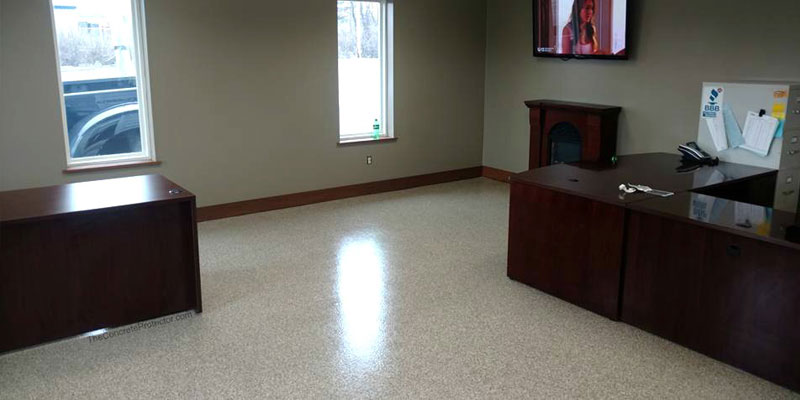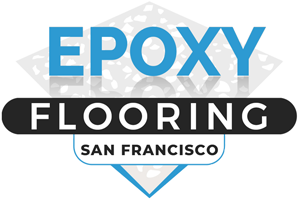Table of Contents

One of the most important decisions homeowners need to make is what kind of flooring they should use. Flooring not only adds beauty to the appearance of your house but also protects your investment. There are specific things you should consider when choosing between epoxy floors and tile floors.
Epoxy Floors
A new type of flooring product on the market is an epoxy coating, typically made by mixing two liquids together and allowing them to harden for several hours. Unlike tile or some other floorings, this type does not require grout which can crack over time or become stained. The process is very easy; it’s similar to painting a wall with paint. Homeowners no longer have to deal with grout problems like water damage or mold and mildew. There are a variety of colors to choose from, so homeowners can have a wide choice of styles.
Epoxy floors come in many different forms:
· Floor coatings – This is one common type of epoxy coating. It’s made by simply mixing two liquids together and allowing them to air dry. Once the product has dried, it becomes solid and essentially waterproof, protecting your flooring from water damage as well as other types of stains like dirt or oil that might seep into the material over time.
· Concentrates – These products clean and protect your current flooring; however, they do not provide much protection beyond normal wear and tear. They do not protect against water damage or other potential stains.
· Floors paints – These are similar to regular paint, but they are designed to be used on top of your current flooring. They come in a variety of colors and styles and can really change up the appearance of a room. However, they do not provide as much protection against water damage or other potential stains as the coatings do.
Tile Floors
Tile flooring has been popular for many years because it is both beautiful and durable. There are several different types of tile to choose from, including ceramic, porcelain, and stone. Tile is also easy to clean and does not show dirt or dust as easily as some other flooring materials. One downside to tile is that it is not waterproof. Tile flooring will eventually crack if you have leaks in your home or pool water seeps into the ground.
Epoxy floors are typically more affordable than tile floors because the main materials are cheaper to purchase and apply. Some brands cost as little as $7 per gallon, making them a very reasonably priced type of flooring. However, tile can be much more affordable on some projects; for example, it only costs about $8 per square foot on average compared to epoxy’s $15 per square foot price tag. The durability of each type varies by manufacturer; however, epoxy is known to wear down faster than tile does with heavy use. On average, epoxy will last around 25 years, while tile can last up to 40 years.
Benefits of Epoxy Flooring
There are a number of benefits to epoxy flooring, including:
· Resistant to damage from water and other liquids – It’s common for floors to get wet or develop leaks over time. These types of floors can withstand high amounts of moisture without getting damaged or showing signs of wear and tear.
· Easy installation – Unlike tile flooring, there is no need to hire a professional contractor to install epoxy flooring. It’s a very easy process that does not require much work at all. All homeowners have to do is mix the two parts together and apply it to their current flooring; then, allow it to dry for several hours before walking on it or using the room again.
· Easy to clean – Since epoxy is waterproof, it’s very easy to clean and maintain. Just wait for the coating to dry, and use a damp mop or paper towel to wipe the surface clean of dirt and oil stains. There is no need for strong cleaners or scrubbing pads that can potentially damage your flooring. Cleaning this type of floor is as simple as wiping dirt away with water and paper towels.
Benefits of Tile Flooring
Tile provides homeowners with several benefits, such as:
· Durable – The material itself will last a lifetime without showing significant signs of wear and tear. The only real downside is that grout may crack over time if there are high amounts of foot traffic in the area. However, tile is still considered to be one of the most durable types of flooring available on the market today.
· Cost-effective – Tile floors are very affordable for the price you pay, especially compared to epoxy floors that are around twice as expensive. The material itself is relatively cheap because it doesn’t require specialized materials or extensive installation methods like other types of flooring do. If there are any cracks in your grout over time, they can be easily fixed with a quick trip to a building supply store. You can also have tiles replaced if need be without having to completely install new floors throughout your home.
Which Material Should You Choose?
It is important to consider the cost of each type before making a final decision. Tile is often cheaper than epoxy, and it may be the best option for those who want their floors to last as long as possible. Epoxy tends to wear down over time with heavy use, but it’s much easier to maintain and install, especially for first-time do-it-yourselfers. If you choose tile flooring, make sure you seal your grout lines every few years, so water does not damage them or cause mold or mildew growth in these cracks.
If you choose epoxy for your flooring, you won’t have to worry about repairs or damages as tiles do. It tends to hold up better under pressure and weight than tiles that may crack over time with excessive use. The only downside is that epoxy can cost more than tile overall – but this type of flooring often looks much better and can be more resistant to spills and other liquid damages.
In the end, it all comes down to personal preference. Consider your needs and budget before making a final decision on which type of flooring is best for your home.
